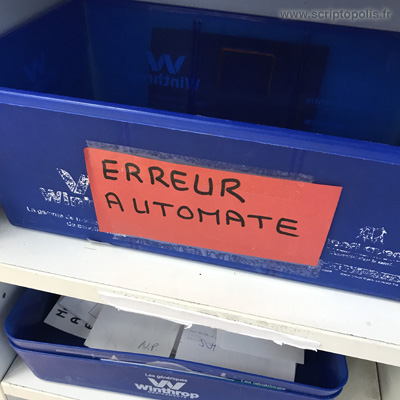Offload
Things are now clear: it is not the replacement of humans by robots that is on the horizon of our professional lives, but a shift in work, a reconfiguration of everyone’s places and tasks. We have been coping with automated machines for some time now. One phone call to any customer service department is all it takes to be convinced. At first, we had to anticipate the organization of services by selecting the right keystroke. Today, we must strive to pronounce correctly the few words that we imagine are relevant and intelligible to the speech recognition system. At work, it’s even a longer story: blue-collar workers, office workers or farmers spend their time adapting to what some more or less sophisticated automatons presuppose is reality, and their own activity.
Yet this adaptation, these anticipatory measures have their limits. It must sometimes be admitted that robots make mistakes, big time. And thus that humans can no longer close their eyes or wipe the slate clean. In this pharmacy, the workspace was organized as if everyone wanted to be reminded of this fact. And in a place that we imagine full of all kinds of inspections, this bin explicitly reserved for the “errors” of the automat seems to be a good way to avoid unfair penalties. No one among humans should be blamed for taking this or that drug out of stock when that stupid robot is the one who screwed up once again.







